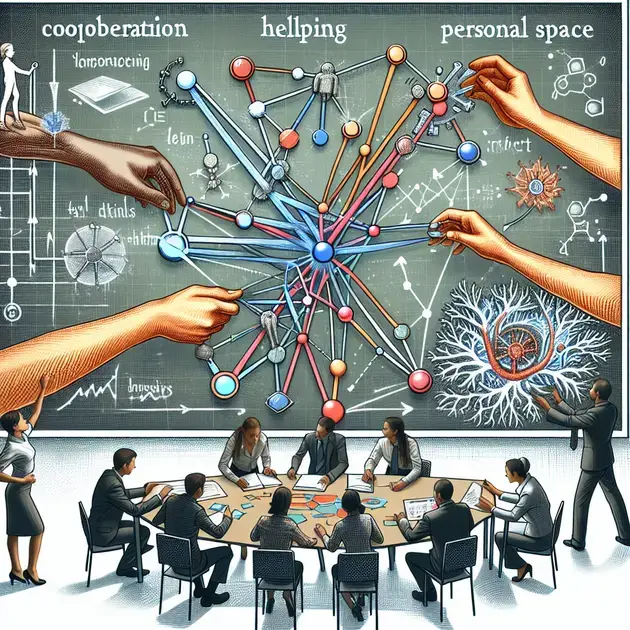Helping out your neighbor or minding your own business?
A challenging choice with different benefits for each decision
In our daily lives, we often come across situations where we are faced with the dilemma of whether to lend a helping hand to our neighbors or simply mind our own business. This decision can have significant implications not just for our immediate interactions but also for the overall dynamics of the community or system we are a part of. Fortunately, game theory offers valuable insights into making such choices from a theoretical standpoint.
Game theory is a branch of mathematics that analyzes the strategic interactions between rational decision-makers. It provides a framework for understanding how individuals make choices based on the outcomes they expect to achieve. In the context of helping out neighbors or minding our own business, game theory can shed light on the different benefits associated with each decision.
When we choose to help our neighbors, we often do so out of altruism or a sense of duty. By offering assistance or support, we create a positive impact on their lives and foster a sense of community. This can lead to reciprocity, where our neighbors are more likely to help us in return when we need it. Additionally, helping others can also enhance our reputation within the community, improving social bonds and creating a harmonious environment.
On the other hand, minding our own business can have its own set of benefits. By focusing on our own needs and goals, we ensure that we have the necessary resources and energy to meet our own obligations. This self-centered approach can lead to personal growth and success, as it allows us to prioritize our own well-being and pursue our own interests. Moreover, it avoids potential conflicts or entanglements that may arise from interfering in others’ affairs.
However, it is crucial to recognize that this binary choice between helping and minding our own business may not encompass the full complexity of human interactions. In reality, cooperation and mutual support often go hand in hand with individual pursuits. Recent research in game theory has revealed new network structures that enhance cooperation throughout a system.
By studying different network structures, researchers have identified how certain patterns of connections allow for the optimal spread of cooperation. These insights from game theory have potential applications not only in human societies but also in the biological realm. Understanding how cooperation can be promoted within a system can have profound implications for fields such as ecology, where the survival and thriving of species often depend on cooperative behaviors.
In conclusion, the decision to help out our neighbors or mind our own business is a challenging one, with different benefits associated with each path. Game theory offers valuable insights into understanding these choices from a theoretical perspective. Furthermore, novel findings in game theory reveal new network structures that enhance cooperation throughout systems, providing potential applications in biology. Ultimately, striking a balance between individual pursuits and community cooperation can lead to thriving communities and a harmonious coexistence.
